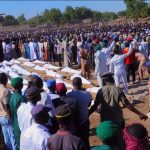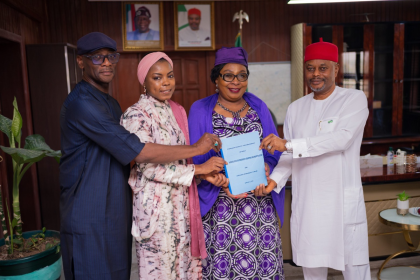Chief Executive Officer of Dorogis Limited, one of Nigeria’s pioneering mineral exploration firms, Tolulope Fatunbi, has called for a new approach to resource development that combines technology, accountability and environmental responsibility.
He said the continent’s vast reserves of lithium, cobalt, nickel and rare earth minerals represent not just an opportunity but a historic duty.
Speaking in an interview with The Punch on Sunday, Fatunbi said, “This is not merely an opportunity. It is a historic duty to reshape Africa’s economic path while contributing to solving a global crisis.”
Fatunbi, known for integrating geoscience with artificial intelligence, drone technology and mineral economics, said Nigeria must use innovation to unlock the true value of its mineral resources.
“We’re using AI and machine learning to model mineral systems, drones to capture airborne geophysics, and satellite data to predict new deposits. Africa must harness technology to unlock the true value of its mineral base,” he said.
He proposed creating a National Critical Minerals Development Agency to coordinate geological mapping, data collection and value-chain integration in Nigeria.
“Until we pair Nigeria’s geology with the tools of the Fourth Industrial Revolution, our resources will remain geological trivia rather than economic leverage,” he added.
According to him, responsible mining could become a cornerstone of poverty reduction and sustainable growth if backed by sound policy and transparent governance.
Fatunbi also called for investment in rare earth and high-purity quartz processing zones across Bauchi, Nasarawa, Ogun, Kwara, Cross River, Plateau and Kogi states to position Nigeria as a refining hub for export-grade materials.
“China’s dominance doesn’t come from having the most minerals. It comes from refining them better than anyone else,” he said.
The mineral technology expert also emphasised the need to integrate mining with energy and security strategies, arguing that mining operations capable of powering their host communities would gain both social and national value.
“A mine that powers its host community earns both social licence and national value,” he said.
Fatunbi urged Nigeria to adopt a Strategic Minerals Export Control Policy to discourage the export of unprocessed resources and incentivise local refining.
“We can no longer afford to export our advantage. Local processing must be incentivised through policy, not left to chance,” he said.
He further stressed the need for training and diaspora engagement through partnerships with institutions such as the University of Toronto’s Lassonde Institute.
“Technology and deposits mean little without people who can interpret and transform them,” he said.
However, climate journalist and Editor of CheckClimate Africa, Lanre Olagunju, warned that the race towards mineral industrialisation must not undermine environmental protection.
“Africa cannot afford to solve one problem by creating a deeper environmental one. If mining is to drive prosperity, it must restore landscapes, respect communities and strengthen resilience to climate change,” Olagunju said.
He described Fatunbi as part of a new generation of African leaders showing that sustainability and resource development are not opposing forces.
“What matters now is not just how much we mine, but how wisely we do it. Tolu represents the kind of thinking Africa needs, leaders who can convert minerals into real value without repeating the mistakes that turned other resource-rich nations into cautionary tales,” he said.
Both experts agreed that Africa’s mineral revolution must be guided by technology, governance and ethics to transform geological potential into generational prosperity.







